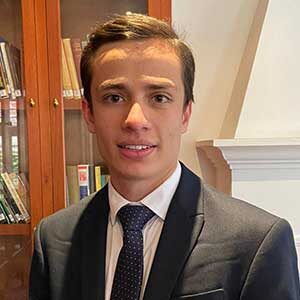
Alejandro Barrera Lopez
Political Science and Government specialist from the Universidad del Rosario. Researcher and Project Coordinator at the Hernán Echavarría Olózaga Institute of Political Science (ICP) of Colombia since 2017.

Political Science and Government specialist from the Universidad del Rosario. Researcher and Project Coordinator at the Hernán Echavarría Olózaga Institute of Political Science (ICP) of Colombia since 2017.
Why did you decide to work on open parliament? What are the most important issues in relation to open parliament that you address through your work?
I decided to work on open parliament issues because I am convinced that the opening of institutions, especially the Congress of the Republic of Colombia, is one of the best ways to strengthen representativeness and democratic participation of my country.
There have been two challenges to work with. On the one hand, the sensitization of the different actors and decision makers in Congress so that they understand the importance of open parliament initiatives. And, on the other hand, the institutionalization of rules and processes that formalize the good practices of open parliament.
What are the key lessons that you learned through your experience working in open parliament at the national level?
A key learning is that institutions are made up of people. For this reason, the human talent that makes up the institutions is the most important asset when it comes to promoting and convincing others about the objectives and tools of open parliament. Making an institution more open and transparent requires that the people who work there understand the benefits and incentives of openness and transparency.
What were the major achievements of the national open parliament process? What are your expectations regarding the work that is currently being done?
One of the main achievements has been to be able to consolidate the spaces for joint cocreation between the different actors that are part of the Congress of the Republic and the various spokespersons for civil society organizations. In these spaces a constructive dialogue takes place, which in itself plans and materializes the principles of open parliament.
It has also been very valuable, not only to establish spaces for the discussion of open parliament proposals, but also to achieve concrete products that have finally been implemented and evaluated. The development and maintenance of the Open Congress Plans over the years have been a fundamental achievement.
I hope that Colombia, its Congress of the Republic, and the citizens can maintain what has been well done, and continue promoting the work on the matter of open parliament. Now and always there will be fast and slow progress, but the important thing is that we push in the same direction.